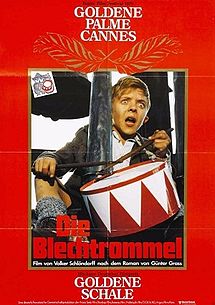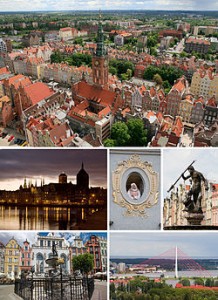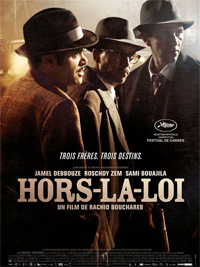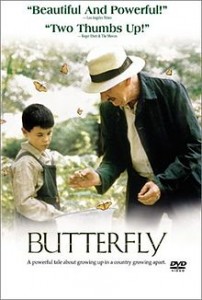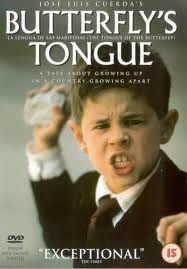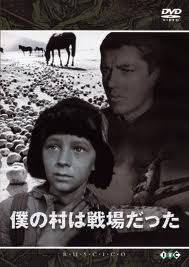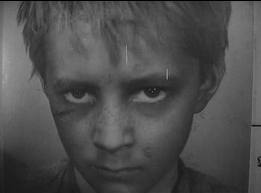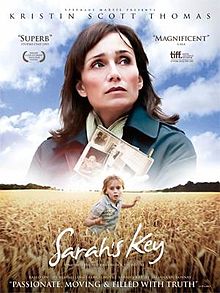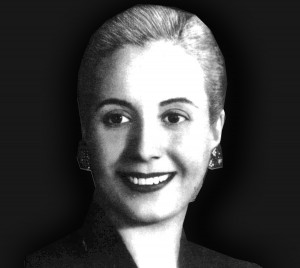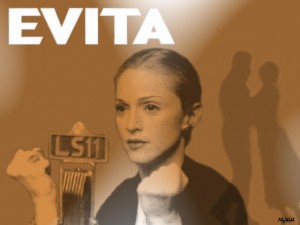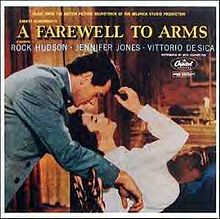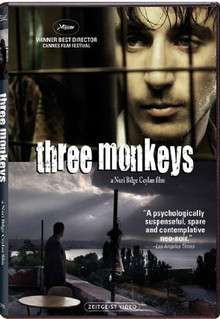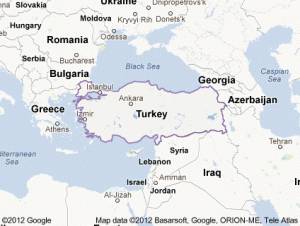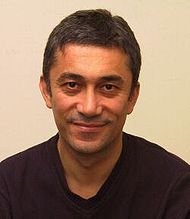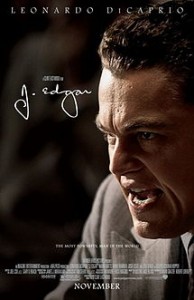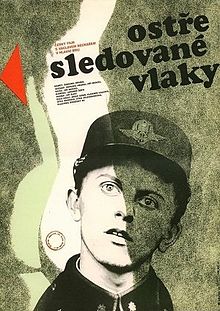 This movie is based on a novel by author Bohumil Hrabal—who wrote the original story of the Czech movie I Served the King of England—and was adapted into a movie by director Jiří Menzel—who also did the movie adaptation of I Served the King of England. In other words, I Served the King of England and Closely Watched Trains were written by the same original author and adapted into a movie by the same director. At first I thought that the evasive satire and dark humor seen in I Served the King of England was only possible after the communist regime collapsed, but Closely Watched Trains is equally a shamelessly satirical tragicomedy. Considering that this movie was made while Czechoslovakia was still under the Communist Party, and also that Jiří Menzel was just the young age of 28 when he made this movie, all I can say is that Jiří Menzel is amazing. Or maybe it’s Bohumil Hrabal who is amazing.
This movie is based on a novel by author Bohumil Hrabal—who wrote the original story of the Czech movie I Served the King of England—and was adapted into a movie by director Jiří Menzel—who also did the movie adaptation of I Served the King of England. In other words, I Served the King of England and Closely Watched Trains were written by the same original author and adapted into a movie by the same director. At first I thought that the evasive satire and dark humor seen in I Served the King of England was only possible after the communist regime collapsed, but Closely Watched Trains is equally a shamelessly satirical tragicomedy. Considering that this movie was made while Czechoslovakia was still under the Communist Party, and also that Jiří Menzel was just the young age of 28 when he made this movie, all I can say is that Jiří Menzel is amazing. Or maybe it’s Bohumil Hrabal who is amazing.
Jiří Menzel was one of the young movie writers that participated in what could be called the Czech New Wave that was emerging in the 1960s. Closely Watched Trains received the Academy Award for Best Foreign Language Film. Due to the Soviet Army suppression of the 1968 Prague Spring, which occurred soon after this award, many movie directors took refuge abroad, but Menzel stayed in Czechoslovakia. Following this, he was once again nominated for the Best Foreign Language Film Academy Award in 1986 for his My Sweet Little Village, but otherwise there was a long blank in his career until 1989, when the communist regime collapsed.
This movie is about the people working at a small station in a small village in Czechoslovakia, which was occupied by Nazi Germany, during World War II. The stationmaster is crazy about keeping pigeons. Train dispatcher Hubička is envied by the stationmaster for being for some reason popular with women, but he doesn’t have any other skills. The elderly station attendant is no longer useful at all. Miloš is the protagonist of the movie. His grandfather was a hypnotist, but when he tried to defend Prague by hypnotizing the invading German army, he was crushed by a German army tank and died. Miloš’s father was a railway worker, but retired early; because of his father’s retirement, Miloš replaces his father at the station by working as an intern. Miloš secretly has a crush on a cute, young conductor, but when he is unable to become a man sexually in front of her, he is distraught and attempts suicide.
So the story goes, and on the surface it appears to be a story of quite flawed men lazily working, but actually, at that time, the shadow of the defeat of the German army was creeping in; also, trains fully loaded with dead people and weapons pass through this station every day, but this is hidden from viewers initially. And then what?!! Hubička, Miloš, and the old station attendant—three people everyone thought were incompetent—heroically blow up a heavily guarded “closely watched train” that is carrying the war equipment for the German army. However, the movie finishes with a sad ending.
Closely Watched Trains, like I Served the King of England, reveals the surrounding heavy reality as we follow the actions of the careless protagonist and laugh.
This movie is very much told from the perspective of a man. This movie shows that, in order to become a man, a man questions himself, suffers, and tries hard. For Miloš, experiencing sex and participating in resistance activities seem to be proof of his value as a man. This movie makes me cynical about the idea of a man casting away his virginity and going to war as a rite of passage because he feels that, although the unknown world is scary, he will not become a man without going through this. A woman may not understand this rite of passage completely, but she may want to say, “Relax! A woman doesn’t judge a man by that!” A woman may find herself being attracted to Miloš, who is timid and refuses to go to war, but does outrageous things as part of the resistant partisans.
The story advances by constantly balancing contradictory concepts—innocence and scheming, fun and sadness, optimistic serenity and cruelty of war, youth and maturity—and the movie makes the audience wonder, “What’s going on?” or “What happens now?” or “What on earth is true?”; by doing this, the movie hooks the audience until the very end of the film. It is incredible.

